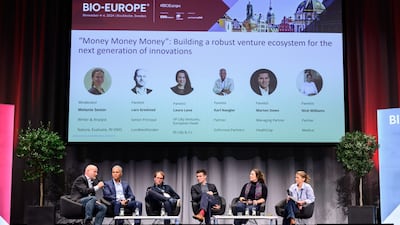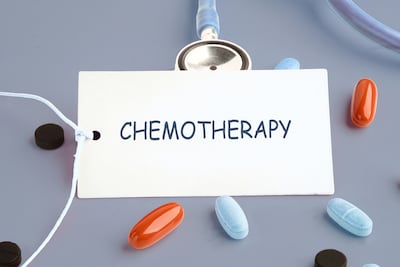Financing

Medixci’s Nick Williams told attendees at BIO-Europe that it was a shame that promising biotechs head to the NASDAQ as soon as possible. He and called for a change in culture from investors and for them to back the continent’s start-ups with proper funding.

LaNova Medicines, as well as other Chinese RNA interference specialists and developers of stem cell-based therapies, were among those securing new funds from venture capital and private equity firms over the past few months.

Public Company Edition: Syndax received all $350m from its royalty financing up front, while KalVista got $100m initially out of up to $179m. Also, Vera, EyePoint and Eledon grossed $300m, $161m and $85m in follow-on offerings, while Neurogene raised $200m in a private placement.

As Sage prioritizes Zurzuvae for postpartum depression after recent setbacks, it will stop selling Zulresso for PPD and no longer pursue Zurzuvae in major depressive disorder.

Panels at the recent BioFuture conference focused on the next breakthroughs in areas such as oncology and neurodegenerative diseases, continuing challenges to GLP-1 agonists, financing and how use of AI is taking shape.

Private Company Edition: Despite a third quarter dip, venture capital investment in biopharma in 2024 is on track to beat 2023, new data confirm. VC mega-rounds of $100m or more helped boost the total, including recent financings totaling $175m for Alpha-9 and $112m for AvenCell.

Following strong demand for offerings by D&D Pharmatech and ENCell, sentiment around biopharma IPOs in Korea appears to be improving, with several other ventures planning to float.

Public Company Edition: In addition to Septerna’s initial public offering, a new life science-focused SPAC went public. Also, Inventiva raised up to €348m ($376.2m), Akeso revealed a $250m private placement and Marinus is exploring strategic alternatives after a Phase III trial failure.

Biostar plans to raise up to $41m through a Hong Kong IPO, which help the Chinese chemotherapy specialist progress lead asset utidelone for various oncology indications.

Septerna’s plans shows companies are once again daring to undertake IPOs without Phase I data – though share movements this year show many face a rough ride on the public markets.

Private Company Edition: Seaport completed its series B round six months after launching with $100m. Also, Treeline disclosed $421.8m in new funding, among other recent $100m-plus VC mega-rounds, and three venture firms revealed more than $2.5bn in new funds.

In a video interview, Nandini Piramal, chairperson of Piramal Pharma, speaks with Scrip about a focus on on-patent products, an integrated ADC offering, a measured approach to the proposed BIOSECURE Act and the company’s strategy to double revenue to about $2bn

The AI-focused biotech closed a $120m series B funding round, bringing the total funding it has raised to $200m, as it aims to have a product candidate in the clinic in 2026.

A court order encompassing funding, drug pricing, clinical trials and overall policy implementation aspects is expected to bring about a paradigm shift in the treatment of rare diseases in India. Sarepta, Roche and Sanofi are among the key players that have been part of pricing discussions.

ARM’s Cell and Gene Meeting on the Mesa offered optimism that a biopharma financial market recovery is under way, but cell and gene therapies still are seen as risky investments.

Public Company Edition: Upstream grossed $255m and CAMP4 raised $75m in October’s first initial public offerings. In follow-on offerings, Crinetics and Scholar Rock brought in $500m and $300m, respectively. Also, Turnstone cut 60% of its workforce and Gritstone filed for bankruptcy.

Data from Evaluate show that biopharma venture capital investment fell from $7.95bn in Q2 to $6.59bn in Q3, but both outpaced every quarter in 2023 as the financial market recovery continues.

Recent major developments in the Korean biotech sector include Orum Therapeutics’ IPO plan and HLB’s US resubmission for the approval of rivoceranib in combination with camrelizumab for first-line liver cancer.

But biotechs are still having to price their offerings lower than they had planned.

Purespring has just raised $105m from an investor syndicate who are betting it can develop the first gene therapy for kidney disease and learn from setbacks experienced in the space.